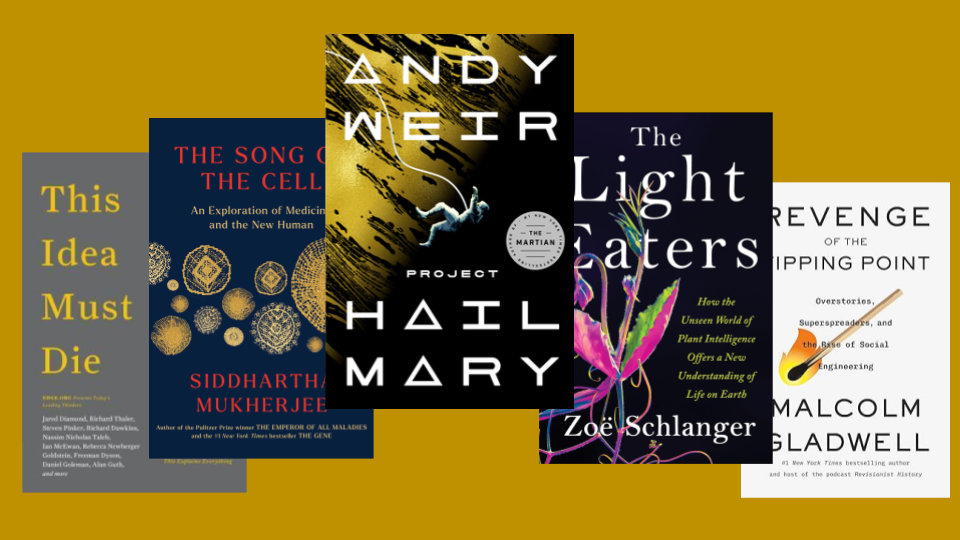What I've been reading to start 2025

This Idea Must Die: Scientific Theories That Are Blocking Progress
Edited by John Brockman, Edge.org
Brief essays from an enormous variety of scholarly fields, on topics as diverse as quantum physics, the tragedy of the commons, cancer-causing mutations, free will, and p-values. Each one argues that a particular idea, like “the habitable zone” or “people are sheep”, should be discarded. Some of them directly contradict each other. My favorite essays take down common misconceptions about statistics, where many scientists (including myself) frequently encounter pitfalls.
The Song of the Cell
by Siddhartha Mukherjee
The history of cell biology, from the discovery of cells to today’s medical breakthroughs, narrated by talented writer/physician/researcher Siddhartha Mukherjee. I really like this one. Mukherjee tells anecdotes from his own life to complement the main story, which are often amusing, moving, or both.
Project Hail Mary
by Andy Weir
I’ve written before about how much I enjoy Andy Weir, and this book was unexpectedly heartwarming. As always, the story is full of fascinating (sometimes fictional) scientific details. Also, it’s about aliens. Would recommend :)
The Light Eaters: How the Unseen World of Plant Intelligence Offers a New Understanding of Life on Earth
by Zoe Schlanger
This book is beautiful! I love the way the author sees plants, as growing (haha) evidence indicates that plants are capable of making decisions, making sense of complex information, and other behaviors that resemble what we might call intelligence. One chapter that stuck with me was about a plant that can mimic the visual appearance of nearby leaves from any other plant, even ones that aren’t native to its area! How does it know what they look like??? Does it have eyes? Is it lifting genetic information from its neighbors’ bacteria? We don’t know (yet).
Revenge of the Tipping Point
by Malcolm Gladwell
This book is about epidemics, whether viral (like COVID-19) or sociobehavioral (like bank robberies), and the factors that precipitate them. I have to remind myself to approach popular sociology books with a healthy dose of skepticism (it’s too easy to see what you want to see when diagnosing society’s ills). That said, Revenge of the Tipping Point is a thought-provoking and engaging read. Would recommend.